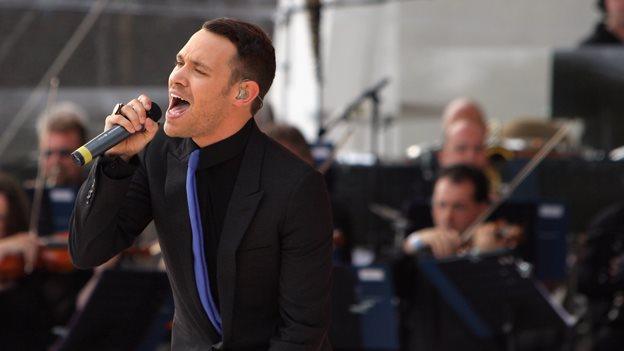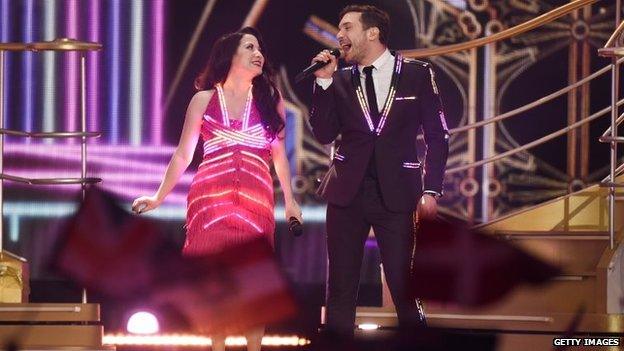Will Young: Eurovision is 'a poisoned chalice'
- Published

Will Young won the first series of Pop Idol in 2002
Pop star Will Young has said he would not enter the Eurovision Song Contest because it is "a poisoned chalice".
The British singer was speaking after the UK came 24th in this year's contest - the latest in a long run of poor Eurovision results for the country.
Young found fame when he won the UK's first Pop Idol competition in 2002.
Guy Sebastian, who won the first Australian Idol the following year, finished fifth in Saturday's contest in Vienna.
Asked if he would contemplate following suit, Young told BBC Breakfast: "No, I don't think so because it's going to be a bit of a poisoned chalice."
He added: "I don't want to do it. Please don't make me do it."
Meanwhile, Olly Murs, another TV talent show graduate, has ruled himself out after being tipped as a "perfect" contender by BBC Three Eurovision presenter Scott Mills.
"No, I wouldn't do Eurovision," Murs told Digital Spy, external. "I think it's always something I've found... new artists normally do it."
It's "not for me", he added.

Electro Velvet came fourth from the bottom in Saturday's contest
The UK has only finished in the top 10 once since Jemini's infamous "nul points" of 2003. In 2009, Jade Ewan finished fifth with Andrew Lloyd Webber's song It's My Time.
As a result, it has proved difficult to attract top talent to the contest, with many record companies wary of the negative publicity resulting from a low placing.
Recent entrants have either been unsigned artists or classic acts such as Engelbert Humperdinck and Bonnie Tyler, whose reputations are assured.
The 2015 entry, Electro Velvet, consisted of Alex Larke, the singer in a Rolling Stones tribute band, and Bianca Nicholas, a former contestant on The Voice.
Their song, Still In Love With You, was submitted to the BBC as part of an open call to songwriters, with the final selection made by a "panel of experts".
It scored just five points.
The BBC last allowed the public to choose the Eurovision entrant in 2010, when an unknown singer called Josh Dubovie was sent to Oslo with a mid-tempo, Steps-lite song called That Sounds Good To Me, external.
The Essex-born singer came last, prompting the BBC to select the 2011 contestant internally. Boy band Blue subsequently came 11th with the ballad I Can.
A study by Eurovision fan site ESC Insight, external suggests that songs selected by committee tend to fare slightly better than those chosen in a televised vote. However, the difference is marginal.
It is not yet known how the BBC will approach the 2016 contest.